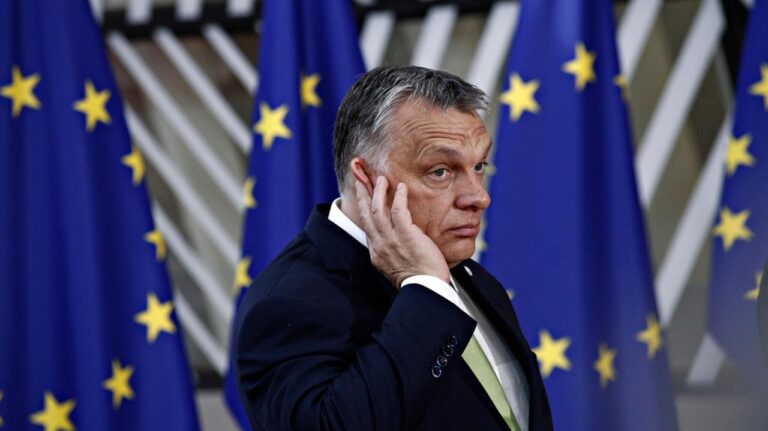Hungary will lose more than 1 billion euros from cohesion policy as part of a conditional mechanism, European Commission spokeswoman Anna-Kaisa Itkonen said on Tuesday. This money will be lost forever. Hungary has no right to appeal. This is not the end of the bad news, as they could lose another billion euros.
The Hungarian government will lose the money because it will take measures required by the Council of the EU in December 2022, including ensuring transparency in the spending of EU funds, especially in the field of public procurement, and not introducing safeguards against corruption, conflicts of interest and other financial abuses.
– The deadline set by the Council for imposing countermeasures on Hungary is December 31, Anna-Kaisa Itkonen admitted in a conversation with the correspondent of the Polish Press Agency.
Brussels emphasized that this is the first time in the history of the European Union that a member state loses funds from the solidarity policy.
Loss of the first part of the money from the unification policy by Hungary
In December 2022, the Council of the European Union decided to freeze a total of 6.3 billion euros, i.e. more than half (55%) of the funds allocated to Hungary under the three cohesion policy programs. Budapest will now lose the first tranche of suspended funds, i.e. 1.04 billion euros. This money will be non-refundable and Hungary has no complaints.
The missing tranche corresponds to the commitments of 2022, which means that Hungary will not be able to repay the money spent on investments and programs implemented two years ago under the cohesion policy. Unlike KPO, in the case of joint funds, Member States apply to the Commission for payment of funds for already completed projects.
The purpose of the conditional mechanism adopted by the AP and member states in 2020, which was also voted by Hungary, is to protect the spending of money from the EU budget and to ensure transparency in the management of European funds by EU countries.
As the Polish press agency found out, there are two situations in which a member state can lose EU funds forever. First, the excessive deficit procedure, when the Council declares the country bankrupt. Such a situation has not happened before in the European Union. The second situation is the conditional mechanism mentioned above, where the money is received for the first time.
The thought of losing billions of euros
Hungary could lose even more. As the PAP revealed, at the end of 2025, Budapest risks losing another tranche of funds, this time for 1.1 billion euros, corresponding to the obligations of 2023. Further tranches may be lost until 2026, that is, until the end. of the planned investment, provided that the Hungarian authorities implement the recommended corrective measures. However, according to sources in Brussels, this is unlikely because Orbán’s government has not made any changes since it took two years.
Today, Hungary cannot benefit from the funds of the European recovery plan. The amount of Hungarian KPO is more than 10 billion euros, of which 6.5 billion euros are non-refundable subsidies and 3.9 billion euros are low-interest loans.
After the opening of funds for Poland in 2024, Hungary remains the only EU country where funds for both cohesion policy and KPO are suspended. As the PAP revealed, Brussels blames the administration of Prime Minister Viktor Orbán for this situation, which can take measures to unlock the remaining funds at any time. Especially because – as speculated in Brussels – the loss of the first billion from the EU budget will be a very painful blow to the Hungarian economy.
About united politics
The goal of the Cohesion Fund is to reduce disparities between the regions of the European Union and to counter the backwardness of regions that are in a worse situation.
Cohesion Policy is a policy that has contributed to the implementation of thousands of projects across Europe with the financial resources of the European Regional Development Fund (ERDF), the European Social Fund (ESF) and the Cohesion Fund (cohesion fund). are member states whose GDP is less than 90% of the average GDP of the EU-27 countries, excluding Croatia).
Main image source: Shutterstock

